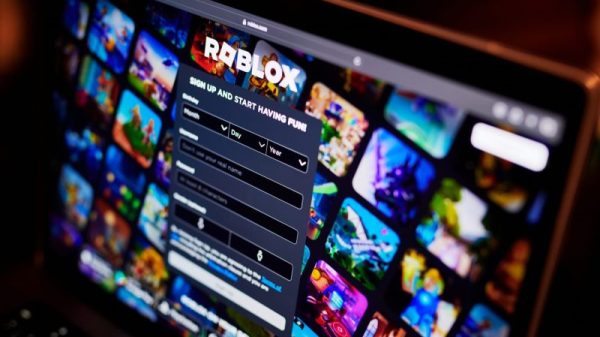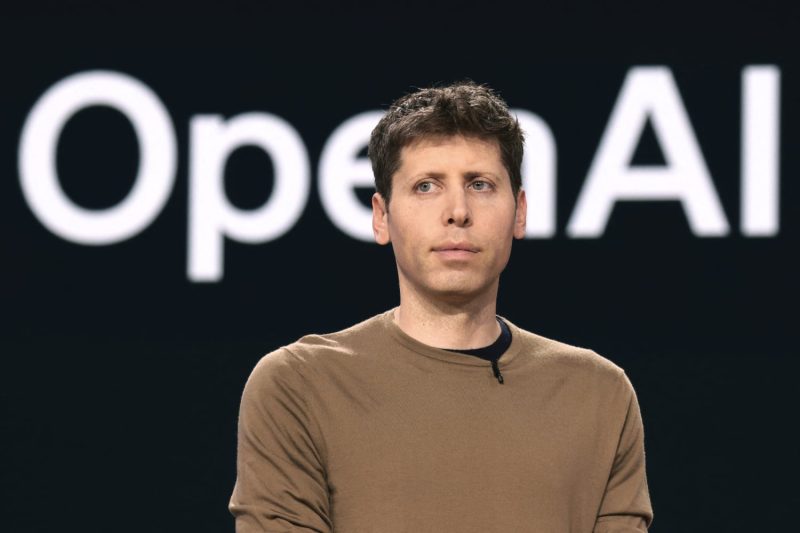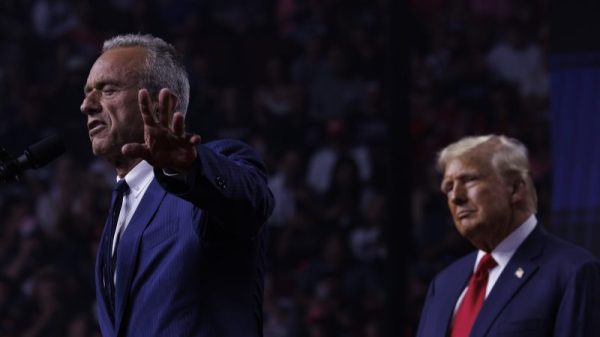OpenAI said on Thursday that the company is considering building data center campuses in 16 states that have indicated “real interest” in the project, which is linked to President Donald Trump’s Stargate plans.
On a call with reporters, OpenAI executives said it sent out a request for proposals (RFP) to states less than a week ago.
“A project of this size represents an opportunity to both re-industrialize parts of the country, but also to help revitalize where the American Dream is going to go in this intelligence age,” Chris Lehane, OpenAI’s vice president of global policy, said on the call.
Shortly after his inauguration last month, President Trump introduced Stargate, a joint venture between OpenAI, Oracle and SoftBank to bolster U.S. artificial intelligence infrastructure. Key initial technology partners will include Microsoft, Nvidia and Oracle, as well as semiconductor company Arm. They said they would invest $100 billion to start and up to $500 billion over the next four years.
The 16 states OpenAI is currently considering are Arizona, California, Florida, Louisiana, Maryland, Nevada, New York, Ohio, Oregon, Pennsylvania, Utah, Texas, Virginia, Washington, Wisconsin and West Virginia.
Construction on the data centers in Abilene, Texas, is currently underway. In the coming months, OpenAI will begin announcing additional construction sites “on a rolling basis,” according to the presentation. Each campus is designed to support about one gigawatt of power or more.
OpenAI is aiming to build five to 10 data center campuses total, although executives said that number could rise or fall depending on how much power each campus offers.
The company also said it expects each data center campus to generate thousands of jobs. That includes construction and operational roles. But Stargate’s first data center in Abilene could lead to the creation of just 57 jobs, according to recent reports.
When OpenAI executives were asked how much electricity and water the data centers are expected to consume and how many workers they will employ, Keith Heyde, director of infrastructure strategy and deployment, said there were some sites where the company may look to partner with a utility and help develop other power-generation methods.
Heyde also said the company is looking into a “light water-footprint design.” Lehane declined to offer specifics about water usage.
Large-scale data centers have sparked controversy in recent years for their staggering environmental costs. The facilities consume a much as 50 times more energy per square foot than an average commercial office building, according to Energy.gov, and they’re responsible for approximately 2% of total U.S. electricity use.
In 2022, Google said that the average Google data center the prior year consumed approximately 450,000 gallons of water per day for server cooling. At least one data center it built could use between one and four million gallons of water per day, Time reported.
But the pressure to advance AI in the U.S. is picking up due to the speedy pace of development in China.
DeepSeek, a Chinese AI startup lab, saw its app soar to the top of Apple’s App Store rankings after its debut and roiled U.S. markets early last week on reports that its powerful model was trained at a fraction of the cost of U.S. competitors.
OpenAI CEO Sam Altman has praised DeepSeek’s model publicly, calling it “clearly a great model” at an event last week.
“This is a reminder of the level of competition and the need for democratic Al to win,” Altman said at the event, adding that it points to the “level of interest in reasoning, the level of interest in open source.”
Lehane said it’s all adding urgency to efforts in the U.S.
“Right now, there’s really only two countries in the world that can build this AI at scale,” Lehane said on Thursday. “One is the CCP-led China, and the other is the United States, and so that’s sort of the context that we’re operating in. Up until relatively recently, there was a real sense that the U.S. had a material lead on the CCP.”
He added that reports surrounding DeepSeek made “really clear that this is a very real competition, and the stakes could not be bigger. Whoever ends up prevailing in this competition is going to really shape what the world looks like going forward.”




























